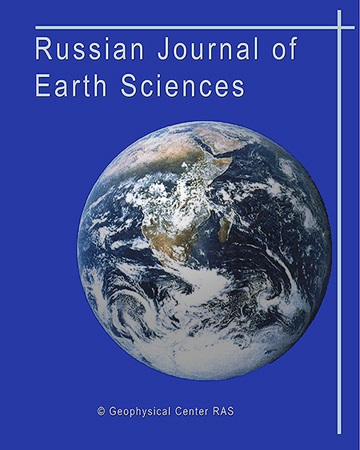The ash clouds and plumes produced during explosive volcano eruptions are extremely hazardous for the population and economic activities and, for this reason, their detection and control over their movements are considered an urgent and vital problem. The solution of the problem is primarily linked to the satellite data analysis and modeling volcanic ash cloud movement trajectories. One of the most accepted models widely used in these investigations is the PUFF model and its Puff-UAF software implementation. The experience of applying the model in different regions of the world for more than a decade to investigate volcano explosive eruptions has shown a sufficient correlation established between the forecasted and observed volcanic ash cloud movement trajectories obtained using remote sensing methods. The paper describes the existing approaches and program solutions applied to meteorological dataset preprocessing for numerical simulation of the ash cloud movement and dispersion from explosive volcano eruptions using the Puff-UAF software suite. The detected problems of wgrib2-generated NetCDF file usage for the puff program operation, as well as their solutions, are discussed. The test numerical simulation results derived using different Puff-UAF versions, the original Puff-UAF 2.2.2 and the Puff-UAF with the authors' puff source code modifications are presented. Their comparison with remote sensing data obtained for the Shiveluch volcano eruption is made and the correctness of the puff source code modifications is concluded.
Volcano monitoring, forecasting, computational models, algorithms, software tools and services, remote sensing
1. Aloisi, M., D'Agostino, M., Dean, K., Mostaccio, A., Neri, G. Satellite analysis and PUFF simulation of the eruptive cloud generated by the Mount Etna paroxysm of 22 July 1998, // J. Geophys. Res., 2002. - v. 107 - no. B12 - p. .
2. Daniele, P., Lirer, L., Petrosino, P., Spinelli, N., Peterson, R. Applications of the PUFF model to forecasts of volcanic clouds dispersal from Etna and Vesuvio, // Comp. and Geosci., 2009. - v. 35 - no. 5 - p. 1035.
3. Environmental Modeling Center, GFS atmospheric model. NCEP Office Note 442 - Camp Springs, Maryland: Global Climate and Weather Modeling Branch, EMC., 2003. - 14 pp.
4. Fero, J., Carey, S. N., Merrill, J. T. Simulation of the 1980 eruption of Mount St. Helens using the ash-tracking model PUFF, // J. Volcan. Geotherm. Res., 2008. - v. 175 - no. 3 - p. 355.
5. Gordeev, E. I., Girina, O. A. Volcanoes and their hazard to aviation, // Her. Russ. Acad. Sci., 2014. - v. 84 - p. 355. DOI: https://doi.org/10.1134/S1019331614010079; EDN: https://elibrary.ru/SKOVZL
6. Gordeev, E. I., et al. The VolSatView information system for Monitoring the Volcanic Activity in Kamchatka and on the Kuril Islands, // J. Volcanol. Seismol., 2016. - v. 10 - no. 6 - p. 382.
7. Persson, A. User guide to ECMWF forecast products (ECMWF, version 1.2) - United Kingdom: ECMWF., 2015. - 129 pp.
8. Rew, R., Davis, G. NetCDF: An interface for scientific data access, // IEEE Comp. Graph. and Appl., 1990. - v. 10 - no. 4 - p. 76.
9. Scollo, S., Prestifilippo, M., Spata, G., D'gostino, M., Coltelli, M. Monitoring and forecasting Etna volcanic plumes, // Nat. Hazards Earth Syst. Sci., 2009. - v. 9 - no. 5 - p. 1573.
10. Searcy, C., Dean, K., Stringer, W. PUFF: a high-resolution volcanic ash tracking model, // J. Volcanol. Geotherm. Res., 1998. - v. 80 - no. 1/2 - p. 1.
11. Sorokin, A. A., Korolev, S. P., Girina, O. A., Balashov, I. V., Efremov, V. Yu., Romanova, I. M., Malkovsky, S. I. The integrated software platform for a comprehensive analysis of ash plume propagation from explosive eruptions of Kamchatka volcanoes, // Current problems in remote sensing of the Earth from space, 2016a. - v. 13 - no. 4 - p. 9. DOI: https://doi.org/10.21046/2070-7401-2016-13-12-9-19; EDN: https://elibrary.ru/WMIXGN
12. Sorokin, A. A., Korolev, S. P., Polyakov, A. N. Development of Information Technologies for Storage of Data of Instrumental Observation Networks of the Far Eastern Branch of the Russian Academy of Sciences, // Procedia Computer Science. Elsevier Science B.V., 2016b. - v. 66 - p. 584.
13. Tanaka, H. L., Yamamoto, K. Numerical simulation of volcanic plume dispersal from Usu volcano in Japan on 31 March 2000 using PUFF model, // Earth Planets Space, 2002. - v. 54 - no. 7 - p. 743. DOI: https://doi.org/10.1186/bf03351727; EDN: https://elibrary.ru/LHAYZT
14. Tanaka, H. L. Development of a prediction scheme for volcanic ash fall from Redoubt volcano, Alaska // Proc. First Int. Symp. on Volcanic Ash and Aviation Safety - Seattle, WA, U.S: Geol. Survey Bull. 2047., 1994. - p. 283.
15. Webley, P. W., et al. Predicting and validating the tracking of a volcanic ash cloud during the 2006 eruption of Mt. Augustine volcano, // Bull. Amer. Meteorol. Soc., 2008. - v. 89 - no. 11 - p. 1647.
16. Webley, P. W., Dean, K., Bailey, J. E., Dehn, J., Peterson, R. Automated forecasting of volcanic ash dispersion utilizing Virtual Globes, // Nat. Haz., 2009. - v. 51 - no. 2 - p. 345.














